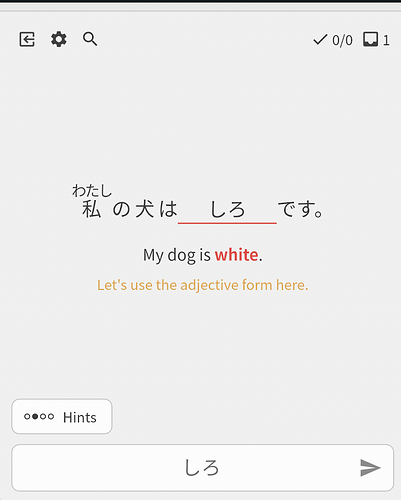I debated whether this should be in the “Japanese” or “Bunpro” forum. Admittedly my Japanese knowledge is quite small. But I think my issue here might be with Bunpro.
Today I received a question that was essentially:
The dog is white
… 犬は _____ だ
I tried to answer しろ, though I figured both しろ and しろい might be acceptable. As I understand it, the former is a noun and the latter is an adjective. In this sentence, I feel like either thing works.
“He is happy.”
“He is a man.”
The object in such a sentence seems to be able to be either noun or adjective.
But, I was marked wrong for my しろ answer and told that しろい was the only answer (“no alts”).
Here’s where it gets really wild though. Look at the first example given for 白:
Should the question allow both answers?



